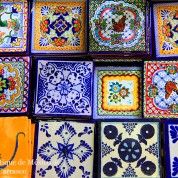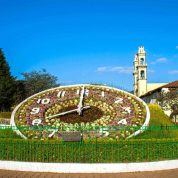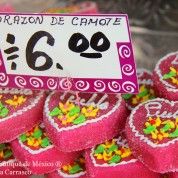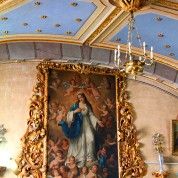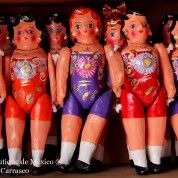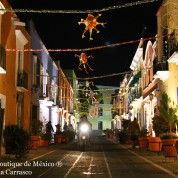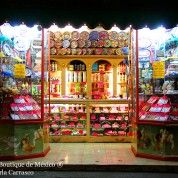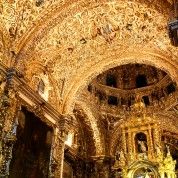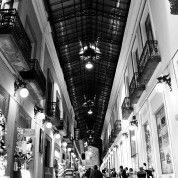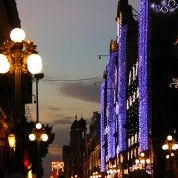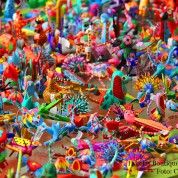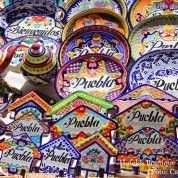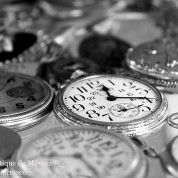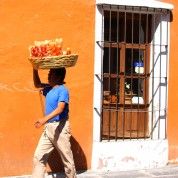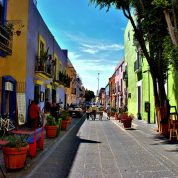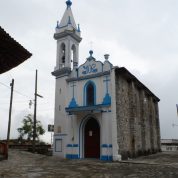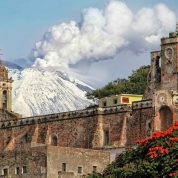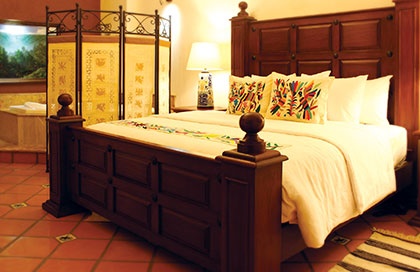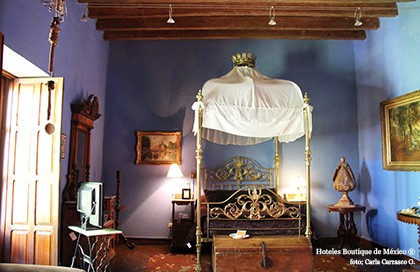
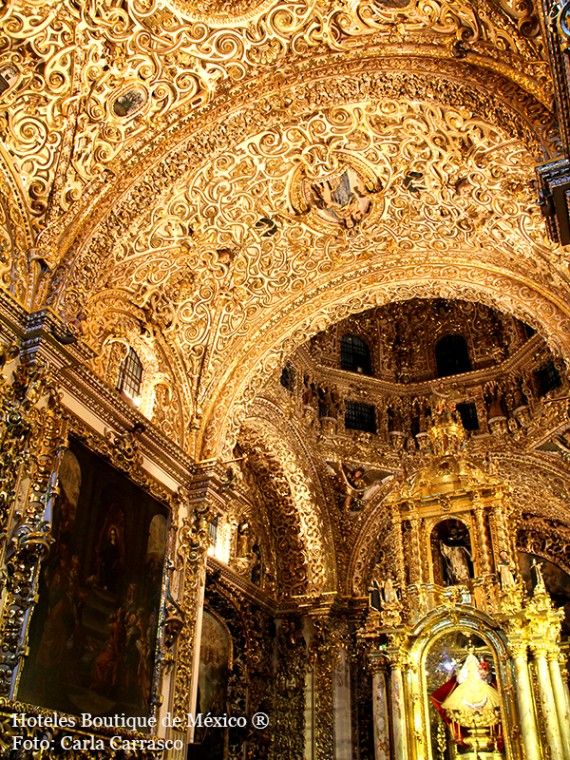
Puebla
Puebla, Puebla
Keenly aware that in December, 1987, the city of Puebla de los Angeles was declared “a world heritage site” by UNESCO, its inhabitants and authorities are serious about preserving their architectural treasures, their traditions and their cuisine.
Puebla´s history
Puebla was founded in 1531 as a stopping place for merchants and other travelers en route to Veracruz from Mexico City or Acapulco. It quickly became an important commercial center and artisans of all kinds set up workshops in the town.
Where is Puebla
To Cholula – 20 km – 12.42 mi – 30 minutes
To Mexico City – 125 km – 77.67 mi – 2:00 hrs
To Oaxaca – 363 km – 225.55 mi – 4:45 hrs
What should you taste?
Sitting down to dine in one of its fabulous restaurants is like traveling through time to the pre-Hispanic era when chiles and native turkeys began to form part of the very Pueblan moles that are today the pride of Mexican cuisine.
Keeping busy
During a visit to Puebla you must visit at least some of the many churches and museums with their impressive historical, artistic and religious treasures.
Museo de Arte Virreinal
(Museum of Art from the Viceroyal period) located in the former Hospital of San Pedro.
Templo de San Miguel
(Temple of San Miguel) The chapel dedicated to the Virgin of the Rosary is the finest example of Puebla´s plasterwork.
Catedral de Puebla (The Cathedral of Puebla)
Great tours and excursions
Cholula
About 6 miles west of Puebla is the epitome of a religious city. Not only is the foundation of the largest pyramid in the world found here, but also the more than 365 cupolas of Catholic churches.
Santa María Tonantzintla
An 18th-century Baroque church decorated with a celestial paradise in polychromatic stucco. (About 12.5 miles from Puebla)
San Francisco Acatepec
The church here is completely covered with ceramic tiles painted with metallic enamel. (About 7.5 miles from Puebla)
Africaam
A zoo with more than 250 species living in complete freedom. Amenities include photo-safaris, picnic area, boat rental for a ride on Lake Valsequillo, and camel rides.
UNESCO World Heritage Sites in or around Puebla
HISTORIC CENTER OF PUEBLA
The city of Puebla, founded in 1531, has preserved its great religious structures such as the 16th - 17th century cathedral and fine buildings like the old archbishop´s palace, as well as a host of houses with walls covered in tiles. The new aesthetic concepts resulting from the fusion of European and American styles were adopted locally and are peculiar to the Baroque district of Puebla.
If you´d like to see the most of Puebla´s historic downtown we suggest the following options:
- Request a private guide at your hotel. Bilingual guides may be hired to tailor your visit and make sure you discover the very best Puebla has to offer.
- Experience the Tranvía or Turibus (with translations available in several languages), both available daily starting at 9am and running throughout the day. Tours leave from the Zocalo.
EARLIEST 16TH-CENTURY MONASTARIES ON THE SLOPES OF POPOCATEPETL – 90 minutes from Puebla.
These 14 monasteries stand on the slopes of Popocatepetl, to the southeast of Mexico City. They are in an excellent state of conservation and are good examples of the architectural style adopted by the first missionaries - Franciscans, Dominicans and Augustinians - who converted the indigenous populations to Christianity in the early 16th century.
The ideal option for you to visit all these Monasteries, located in different villages around the same district, is to hire a certified-bilingual tour guide, who can comfortably give you a very detailed tour of the entire region.
ARCHEOLOGICAL MONUMENTS ZONE OF XOCHICALCO –One hour and forty minutes from Puebla
Xochicalco is an exceptionally well-preserved example of a fortified political, religious and commercial center from the troubled period of 650 - 900 A.D. that followed the break-up of the great Mesoamerican states such as Teotihuacan, Monte Albán, Palenque and Tikal.
The best way to visit this zone is through a certified tour guide, which you can request at your hotel.
HISTORIC CENTER OF MEXICO CITY AND XOCHIMILCO – two hours from Puebla.
Built in the 16th Century by the Spanish on the ruins of Tenochtitlan, the old Aztec capital, Mexico city is now one of the world´s largest and most densely populated cities. It has five Aztec temples - the ruins of which have been identified -a cathedral (the largest on the continent) and some fine 19th and 20th century public buildings such as the Palacio de las Bellas Artes. Xochimilco lies 28 km south of Mexico City. With its network of canals and artificial islands, it is testimony to the efforts of the Aztec people to build a habitat in the midst of an unfavorable environment. Its characteristic urban and rural structures, built since the 16th century and during the colonial period, have been preserved in an exceptional manner.
The best way to visit the Historic Center and Xochimilco is via a guided tour, to avoid the hassle of driving in Mexico City, plus the guide will orient you on the best places to shop and have a snack or a meal.
You may want to know...
Techniques of fine Spanish ceramic-making were introduced and gave rise to the now world famous Talavera, used for dinner plates and vases as well as to cover the facades and interiors of Puebla´s buildings. Two magnificent examples of this tile work are the former Convent of Santa Rosa (today House of Crafts) and the church of San Francisco Acatepec.
Other decorative architectural elements beautifully worked by the artisans of Puebla are the wrought iron window and door coverings (the Cathedral being an especially fine example) and the stucco work. La Casa del Afeñique (House of Sugar Paste) State Regional Museum, for example, is profusely decorated with a plaster that imitates the shape of the sweet almond paste pastry known as alfeñiques.
The marquetry and carved wooden furniture of which Puebla is proud can be viewed today in the fine chairs of the Cathedral as well as in the tables of the impressive Palavoxiana Library.
Hewn stone and an almost transparent obsidian were used from the 16th century on in the many styles of architecture seen from the straight, well-ordered streets of this jewel of colonial cities.
Casona Maria
Puebla, Puebla
Casona Maria is located in Analco, one of the oldest neighborhoods in Puebla, a place brimming with history and vestiges of its colonial past....
ver masMesón Sacristía de la Compañía
Puebla, Puebla
Upon entering the courtyard of this beautifully preserved colonial building, you are instantly transported back to 19th-century Mexico. A unique hotel-antique gallery concept, the...
ver mas